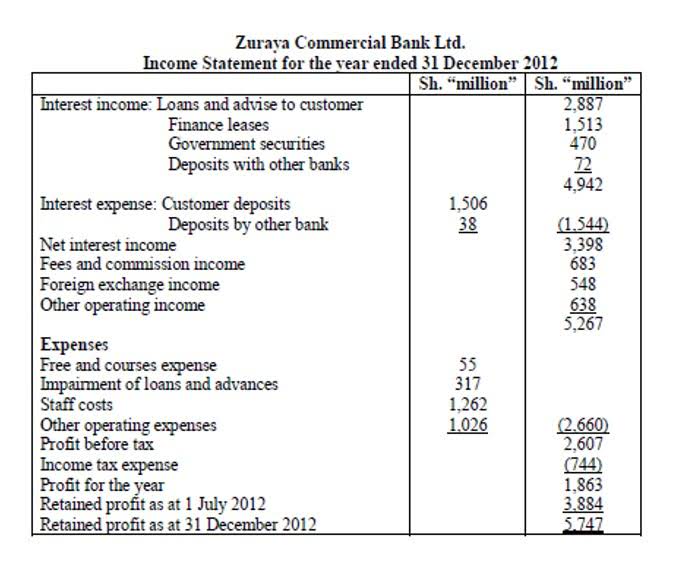
Legal-specific software, on the other hand, is designed to handle the intricacies of trust accounting. This involves comparing the bank statements with the client’s ledger https://www.bookstime.com/ to ensure everything matches up. Any discrepancies must be addressed immediately to maintain accuracy and compliance.
- Otherwise, these funds will go into your normal, pooled client’s trust account.
- But they still fulfill their ethical and fiduciary obligations by safeguarding their clients’ money.
- Many attorneys choose to structure payment plans to make as few transactions as possible to minimize the risk of mistakes and getting into hot water with the bar.
- Each of these records should be kept for a specific length of time—some for 10 years, some for as few as three.
- Good trust accounting will protect your client’s funds and will help to maintain the trust and confidence clients place in their attorneys.
Determine how your firm will get paid
- Understanding the difference between a trust account and an operating account is essential for proper financial management.
- MyCase helps streamline case management and billing processes, making it easier to keep track of client funds and maintain accurate records.
- Work with your CPA to determine how you will meet your sales tax obligations before you do business.
- Trustbooks has helped simplify what was an incredibly complicated, frustrating, and time-consuming part of my practice.
- But having up-to-date and accurate bookkeeping records and leveraging professional accountants experienced in accounting for law firms is key to unlocking law firm growth and financial success for your practice.
- Each month, a team of professional bookkeepers with experience in legal accounting gathers your data for you and turns it into accurate financial statements.
- When you bill your client, that’s when you transfer the funds from the trust to the law firm’s operating account.
Law firms must follow their local Bar’s rules for handling client trust funds. Mismanagement can result in fines or, in the most severe case, an attorney can lose their license to practice law. Being able to find your way around your trust accounting software is critical. With Tabs3 Trust Accounting, you can access a comprehensive overview of your firm’s trust accounts and their standing at a glance. Navigating the home page to complete a transaction or start a reconciliation is intuitive and fast. With just a few clicks, review additional account summaries and other normal balance detailed transaction information.

Can I accept credit card payments for trust deposits?
- With accounting and management features consolidated on one screen, you won’t have to worry about juggling multiple software at once.
- LawPay, known for its reliable and secure payment solutions tailored for legal professionals, offers a robust platform that can significantly simplify your trust accounting process.
- This ensures end-of-month financing is pain-free and your finances are in line with legal ethics requirements.
- This article will demystify trust accounting for lawyers, covering everything from tips and best practices to creating your process.
- Make sure it tracks funds going in and out of the client trust accounts and remains compliant with your state bar rules.
- This will ensure that any method you pursue to reduce trust account usage is within compliance.
- Look into the pros and cons of both methods for your firm, then be consistent going forward to ensure your records are accurate and easy to track.
For an in-depth discussion about the rise of electronic payments in the American legal profession, check out this guide to payment processing from the American Bar Association. Once you’ve determined what kinds of payments your firm will accept, you’ll then need to choose a payment provider to work with. The downside is that accrual accounting doesn’t clearly indicate a business’s true cash flow; a business using accrual accounting can appear to have money at its disposal, while in reality, it has empty bank accounts. To offset this risk, it’s important to carefully monitor cash flow with accounts receivable (AR) and accounts payable (AP), which appear on your balance sheets. Trust accounts are vital for safeguarding client funds and ensuring your law firm upholds the highest standards of integrity and professionalism. Now let’s talk about the costs you pay as a lawyer on behalf of your clients.

Why Software Is Important for Trust Management
It’s crucial for lawyers because it ensures that client funds are handled with integrity, transparency, and in accordance with legal and ethical standards. Proper trust accounting prevents commingling of funds, ensures accurate record-keeping, and maintains the trust and confidence of clients. Compliance with trust accounting rules is also a requirement of state bar associations, making it essential for legal practice and the avoidance of disciplinary actions. Trust accounting for lawyers is more than a regulatory requirement; it’s a foundational element of the legal profession’s commitment to integrity, client service, and ethical practice. As we’ve explored in this comprehensive guide, managing client funds responsibly is crucial for maintaining the trust and confidence that clients place in their trust accounting for lawyers legal representatives.


To help you get started, we put together a simple trust accounting template. Adjust the template to comply with your firm’s trust accounting process and local regulations. Errors can leading to malpractice suits, so many attorneys choose to structure their fees and payment plans to avoid using their trust accounts. By using trust accounts, individuals can ensure their assets are managed and distributed according to their plans, providing peace of mind and financial stability. By diligently monitoring and managing assets, trustees ensure that there are sufficient funds to cover all expenses and meet long-term objectives.
At CosmoLex, we put immense value on data security with all our cloud-based software, which is why we abide by enhanced security standards that are independently reviewed by outside cybersecurity auditors. We store all data in North America; depending on the location of your firm, your data may be held in a data center in either the U.S. or Canada. Let’s look at an example of how a client’s funds should be properly handled.
